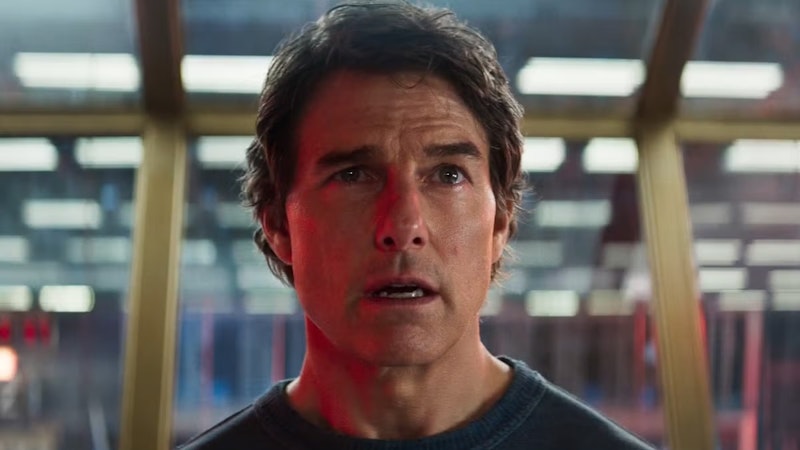Who remembers William Shatner swimming underwater, his weave remaining in place in Star Trek IV? Allegedly his hair implants were included in the budget. Cruise takes a similar plunge in Final Reckoning too—his hair stays firmly attached without tape. It took me out of the movie entirely. How did they stop his hair dye coming off and the star disappearing behind a cloud of ink? Coiffing aside, he earns his pension in this one. There’s no denying Mission Impossible: Final Reckoning stands above everything else popular cinema has produced in years. And that’s hard to do when your leading man is vertically challenged.
The plot—Grok is going all Wargames on us. Cruise et al must get the thing to stop the thing, via call-backs to Brian DePalma and JJ Abrams’ earlier entries in the series. There’s lots of bizarre flash-forwards too—the filmmakers show us what’s going to happen, explain what’s going to happen and then it happens. Nobody’s paying much attention. We just want to see Cruise running through a variety of picturesque environments and doing his big screen Top Gear routine.
Watching Cruise dangle from a bi-plane, I wondered how he gets insured. The fight is insanity with Cruise in free-fall on the plane’s wing. Say what you will about his acting or private life—he has guts. The flooded submarine sequence is staggeringly well-done with its rotating set, raising water-levels and floating torpedoes.
This is screenwriting at its best—give the hero a goal and then do everything imaginable to stop him achieving it. I felt cheated though—the film fails to show how he gets out of the torpedo tube. Pretty sure they don’t have door handles. And you can’t go skin-diving in the Arctic Ocean. But who cares? This isn’t Mission Realistic.
Many complain Cruise isn’t a great actor and I say thankfully not. Great actors are the scourge of cinema—I’m looking at you, Daniel Day Lewis. None of that “I’m ACTING” pretension here. Movies were perfected in the silent era and don’t need actors—they need physical performers. Let’s give 60+ Cruise that. He, and these movies, are throwbacks to the cinema of old.
Recalling the early-1990s—between Rain Man and A Few Good Men, young Cruise was in his heartthrob stage and the girls screamed. Then Interview With a Vampire signalled a shift: Cruise became focused on the art of filmmaking. For a man who takes no credit as writer or director, you must admire his dedication to his craft. Cinema is an expansive medium and can, rightly or wrongly, contain everything from Tarkovsky’s Stalker to Garrone’s SS Experiment Love Camp. A world filled entirely with Merchant Ivory and Mike Leigh would be a thrill-free feel-bad dystopia. There’s nothing wrong with celebrating Cruise for what he and his fellows do so well.
Lately, Cruise has many calling him the last movie star. More talk about the death of Hollywood as the film industry moves out of Los Angeles. Box office continues to decline, and streaming dominates. Widescreen cinematography is giving way to vertical video and TikTok. Yet, Cruise gratuitously dangling from a plane demands to be seen on the big screen. Final Reckoning isn’t content: it’s old-fashioned spectacle.
Cruise and his collaborators—whom he never fails to publicly acknowledge—understand this. He’s now of an age where he needs to consider defying death rather than doing death-defying stunts. What comes after retiring the hair dye and the safety harnesses? Who will fill the Cruise-shaped hole in what remains of the cinema? And will it be enough to forgive him for jumping up and down on Oprah’s sofa?

